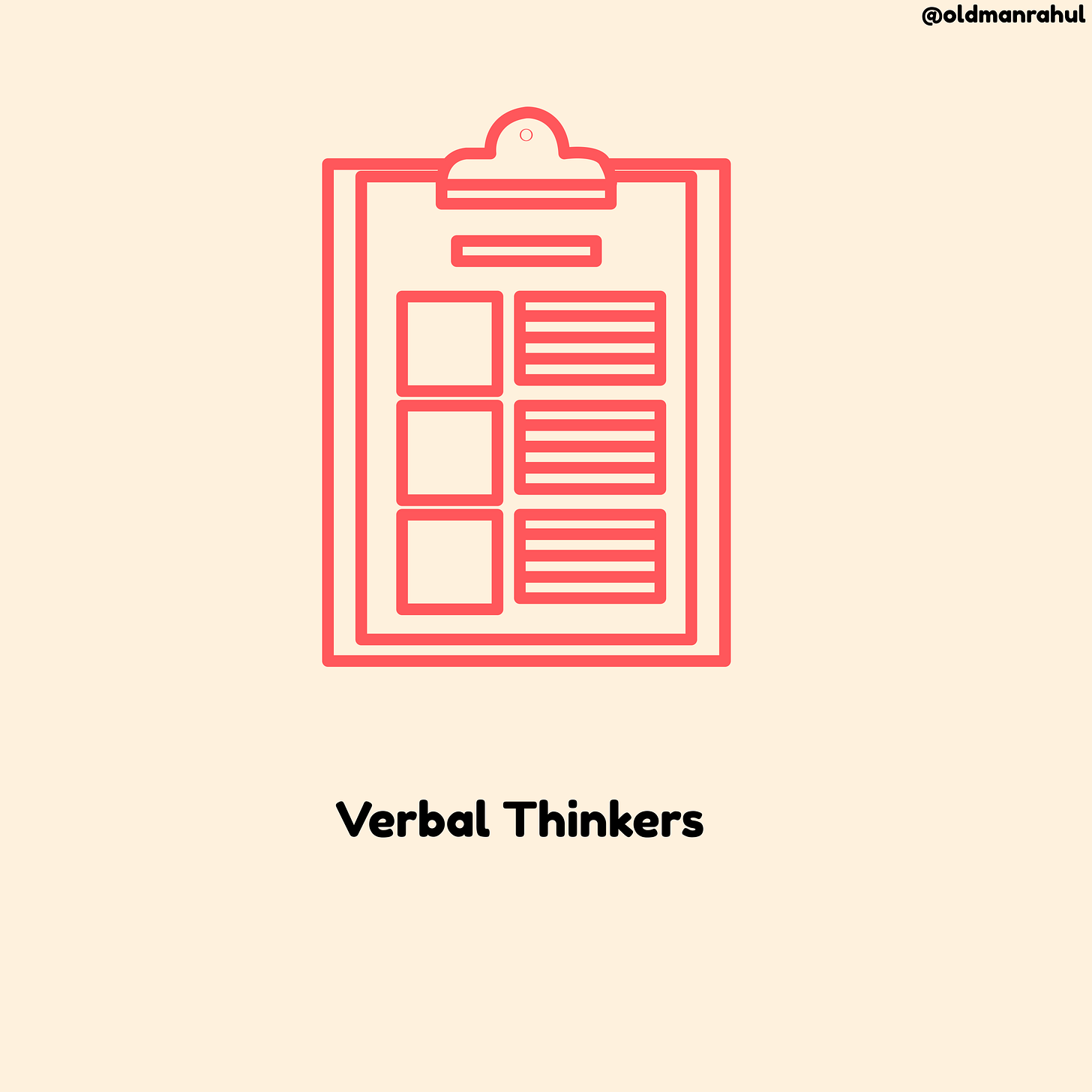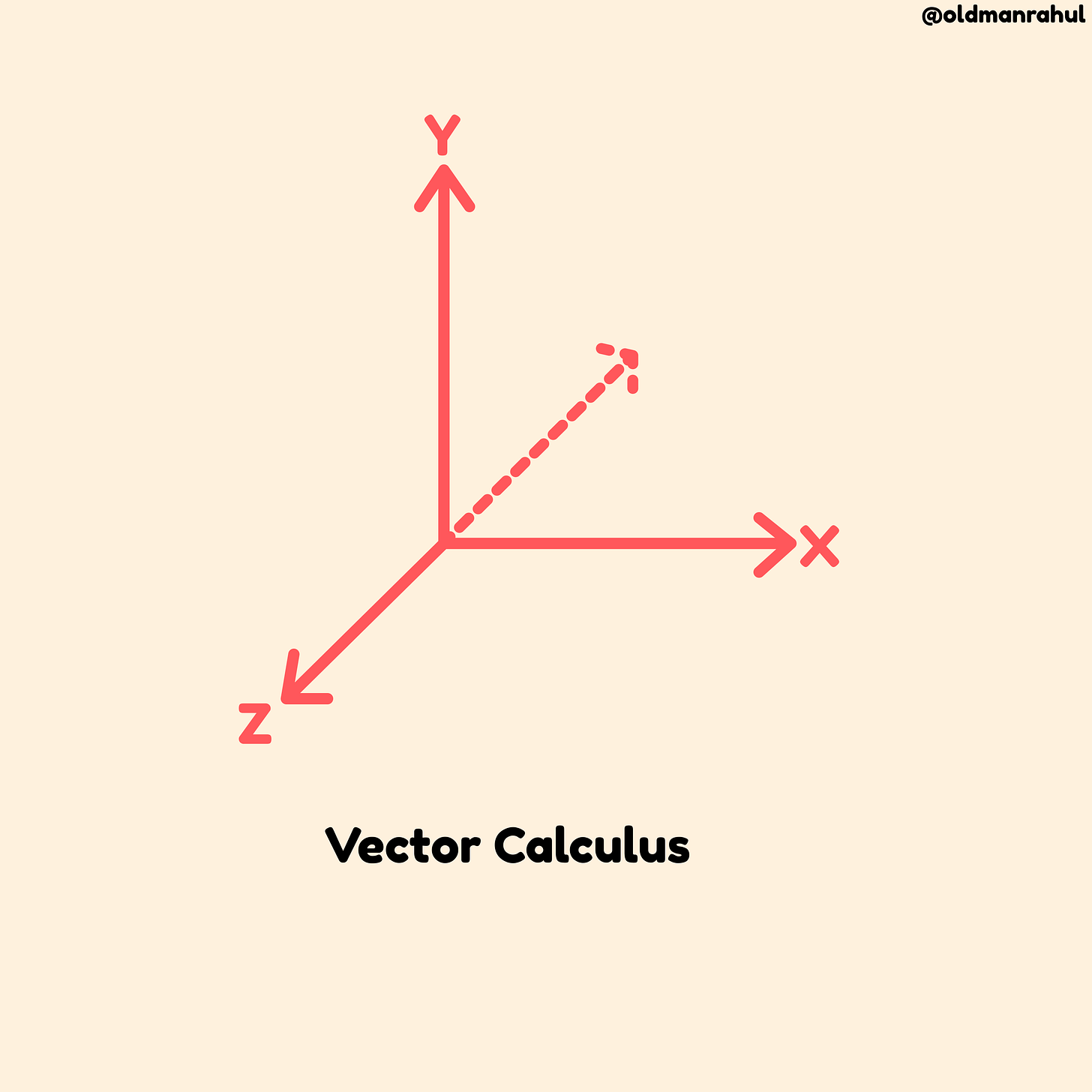Not everyones brain works the same way.. did you know that?
I'm a little embarrassed to admit that I only recently figured this out.
For most of my life, I thought everyone thought visually. Which is to say, I thought everyone visualized images in their head when they thought about stuff. Turns out, I'm very wrong and only it took me watching a YouTube video at the age of 34 to realize this.
In said video, Van Neistat1 describes how he learned that his brain wasn't broken, only different.
Watch these two clips below and I'll explain after (audio kicks in after a few seconds2).
This blew my mind. I mean, I know our minds are different. For instance, people have different IQ scores, but that’s a measure of brain horsepower. We all can have different horsepower engines but the engines work the same way, right? Our eyes are a literal extension of our brain. Doesn't that mean our brains prefer visual data? What about the adage: "a picture is worth a thousand words?" Again, I thought that hinted at a preference for visual data.
Those are still valid questions and something I will look into later but the point still stands. Van’s video opened up my mind to the idea that people’s brains do work differently. Excluding biases and past experiences, our brains can and do work differently.
Types of Thinkers
So what are the different types of thinkers?
In her book, Visual Thinking, Temple Grandin3 categorizes the two main types as:
1. Visual thinkers: people who think in either pictures or patterns
2. Verbal thinkers: people who think in words
Pattern thinkers think in abstractions and patterns. They are good at math, computer programming, and can think in physical spaces (like how many marbles can fit in a jar). I relate closest to this category of thinker.
Van and Temple are object visual thinkers. They think in pictures. Their brains work like the search result from google images. If you type in "dog" into google images, you'll get specific images of dogs. In the same way, if they think of the word "dog," their minds will recall images of specific dogs they've seen over their lives. Object visualizers are good with animals, art, photography, and mechanical devices. If you're an object visualizer, you should consider becoming an artist or an industrial designer. Jony Ive4 is likely an object visualizer.
Finally, there are verbal thinkers. They comprehend things in words and sequential order, which is also why they tend to do well in school. Verbal thinkers do well as teachers, lawyers, writers, and administrators. Schools cater to verbal thinkers the most.
It's important to note that people are rarely a single type of thinker. Most of us are a blend of each but we can lean more in one of the category over another.
Umi and Trig
Back in high school, I had friend, we'll call him Umi, that was the top scorer in my grade level. Across all subjects and domains, arts, sciences, second languages, Umi scored near 99%. I only know this because our school used to hang plaques in the main hallway showing the names of students who made honor roll. The plaque had a dedicated spot for the top scorer and their For many years, Umi scored top of class.
But even as a top-student, Umi struggled with vector calculus, which was odd. He couldn't imagine the 3d vector lines in his head, which came naturally to me. I remember the conversation we had in the library and the pure frustration in his voice. For most of the curriculum, we worked in a 2D XY axis and he crushed it. The moment the class moved on to vectors and a 3D XYZ axis, his mind couldn't comprehend.
It was obvious to me that this wasn't going to stop Umi from conquering vector calculus. But it was one example of where, perhaps, our different minds created an uneven playing field.
Come to think of it, any time there's a visual component to the domain, I excel at it. I was good at algebra but I was great at trigonometry because I could see it. I'm decent at coding interviews, but I'm killer at system design interviews because it requires diagraming.
Going back to high school again for a sec, my school used to host the Euclid Math Contest. The exam was 10 questions of increasing difficulty. To quote the official website, the last few questions are "some of the most complex and challenging among all our contests." I faired ok on these exams but if there was a trig problem, it felt effortless. Even if the problem was one of the final uber-difficult ones on the exam, I found it fun.
Education
Knowing what I know now, I think it’s insane how we organize classrooms today. We have one teacher, teaching one curriculum, to a class of many students with different minds. No wonder people have such polarizing opinions of school. If you lean towards verbal thinking, school’s an awesome place, you're in your element. If you're an object visualizer, school is a grind, you feel like a fish out of water.
I was good at math and the hard sciences, but I struggled to write essays. I didn't “get it.” Writing came so naturally to my peers but I struggled to put words to the page. I still struggle with it to be honest.
To make this post easier, I tried to visualize the ideas rather than draft a typical written outline and it helped.
Earlier this week, when I was writing an email to some friends of mine, I struggled to finish the last few sentences. I didn't know how to end the email. Instead of white-knuckling through it as I usually do, I tried to imagine me talking to them in-person. Imagining the scene quickly unlocked how I should end the email. It surprised me how changing the frame of my thinking made thinking, itself, easier.
Where To Go From Here
If some part of today's newsletter clicked for you, I'd encourage you to watch Van's video:
Checkout Temple Grandin's lecture on the "The Autistic Brain." Temple digs deeper into her physiological research on the different types of minds:
And if you're interested in the podcast Van was listening to, check out Temple's interview on Jordan Peterson's podcast:
Finally, consider which type of thinker you are and try experimenting with different ways of working. If you're a visual thinker, don't rely solely on written instructions, pull up a YouTube video or diagrams to help connect the dots in your mind. If you're a verbal thinker, don't rely on solely on a YouTube video, download step-by-step instructions or try transcribing the video so you can refer to a written copy.
Be willing to experiment. You might not “get it” because your brain prefers a different medium.
Yours,
-Rahul
P.S. a reminder you can reply directly to oldmanrahul@substack.com, or you can tweet me @oldmanrahul about this edition. Thanks for reading and supporting my writing :)
It’s an obsession.







